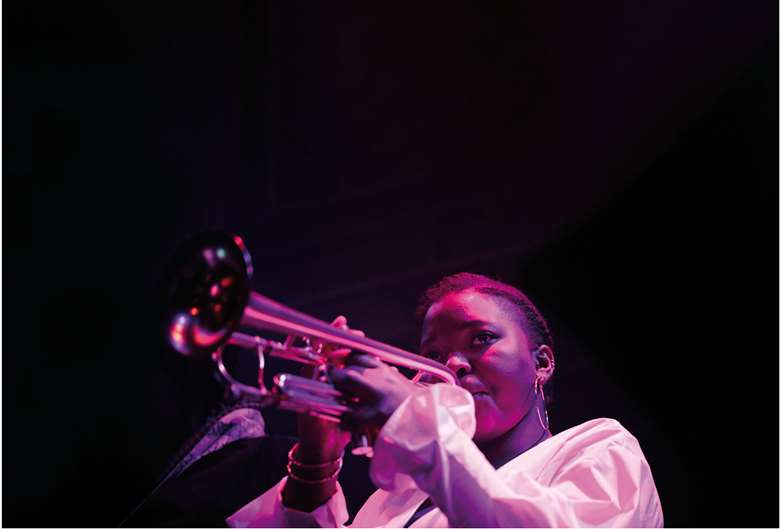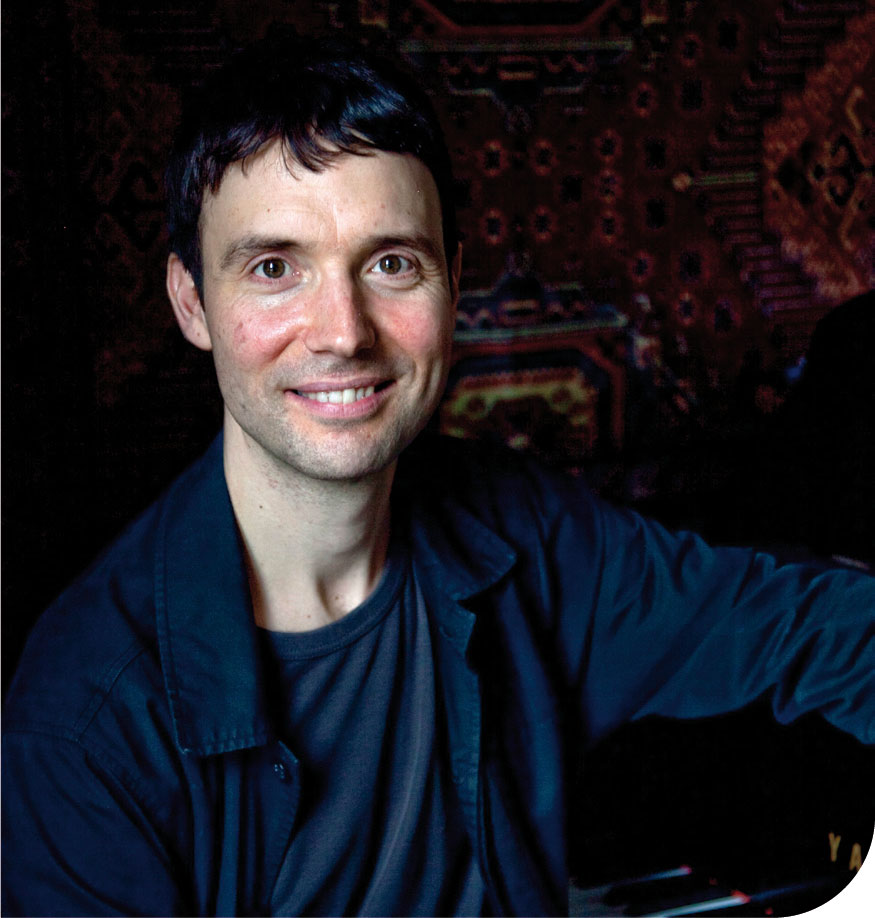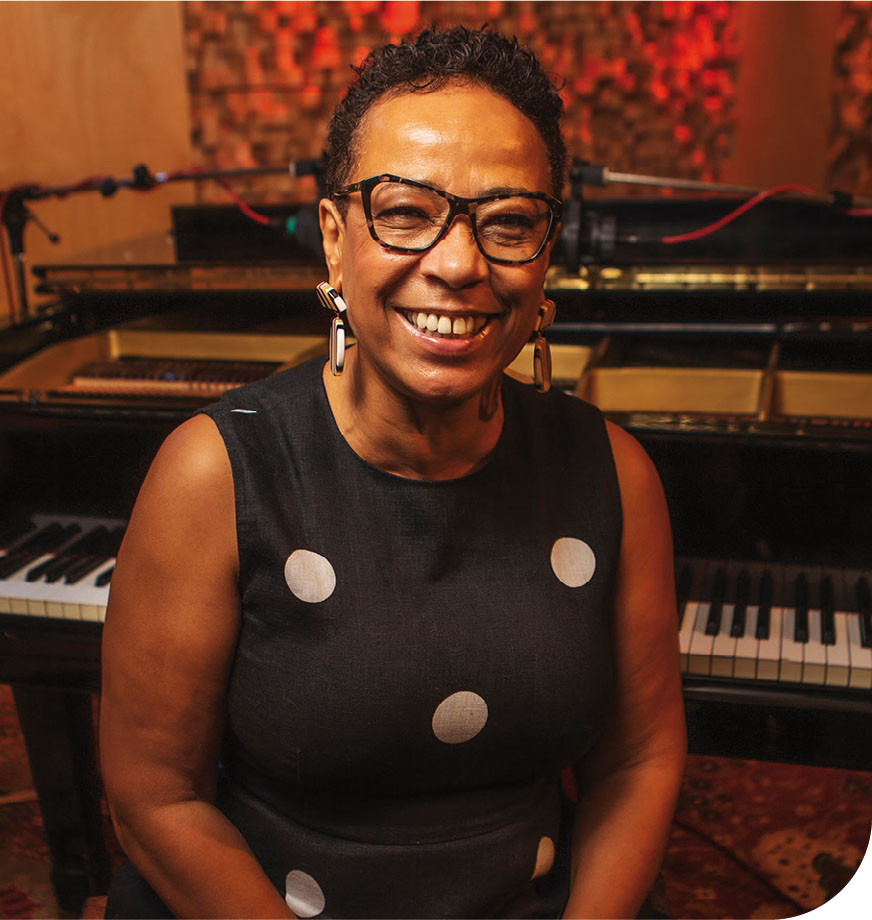Jazz Hang: Diversity in jazz
Claire Jackson
Monday, March 1, 2021
Trinity Laban and Tomorrow's Warriors are working to redress the diversity and accessibility issues in conservatoire-level jazz with a new venture for 11- to 16-year-olds, writes Claire Jackson.

Pat Pascal
'I think about music from the moment I wake up in the morning to the moment I fall asleep at night,’ says the fictional jazz pianist Joe Gardner, star of Soul, Disney-Pixar's latest blockbuster. While music has always been a major element of the studio's work, this is the first time – shockingly – the storyline has had a black male lead. Gardner (voiced by Jamie Foxx) – like many musicians – has a portfolio career as a classroom teacher and occasional session musician. Soul opens with the pianist getting a life-changing gig performing with The Dorothea Williams Quartet at the pleasingly named Half Note Club. Talented saxophonist Dorothea Williams happens to be both black and female. Soul represents an important cultural shift in terms of the popular representation of jazz, an art form that despite being rooted in black history, is not always diverse at an elite level. This is particularly true in conservatoires, where cohorts are almost universally white.
Joining forces
‘You see black jazz musicians on stage but at higher education it is a different story,’ says Janine Irons, co-founder of Tomorrow's Warriors. ‘Young musicians need to see people in conservatoires who look like them – then they believe that it is a place for them,’ agrees Gary Crosby, who set up the charity with Irons in 1991. Tomorrow's Warriors has supported hundreds of musicians over the past 30 years. Some participants have gone on to Trinity Laban's jazz department, with alumni including Moses Boyd, Cherise Adams-Burnett, Joe Armon-Jones and Nubya Garcia. Is conservatoire training necessary for jazz specialists? ‘Duke Ellington believed that the jazz musicians of the future should study at conservatoires,’ says Crosby, ‘that's good enough for me!’
Trinity Laban's head of jazz Hans Koller emphasises the importance of conservatoire training in preparing musicians for a long-term career. ‘It's about longevity. It's important that young musicians have the opportunity to make mistakes away from commercial pressures. Yes, some lucky ones might be able to have a short successful career without it – but being a musician is more than having five minutes of fame.’ Trinity Laban's jazz department is not short of applicants – Koller anecdotally mentions there were recently 150-odd applications for a few dozen places. Critically, it's the diversity of the applications – just a handful were from BAME students. ‘We know we need to do more,’ says Koller.

‘Young musicians need the opportunity to make mistakes’: Trinity Laban head of jazz Hans Koller (Image: William Ellis)
To this end, Trinity Laban has joined forces with Tomorrow's Warriors to launch the Jazz Hang, a series of workshops and masterclasses with a particular focus on black and female musicians aged 11–16. The project will also provide professional development opportunities for Tomorrow's Warriors and Trinity Laban jazz students, who will assist with workshop delivery.
‘There's always been a “street” and “school” element to jazz,’ says Koller. ‘In the past, musicians learned by listening to records and jam sessions. There was the odd workshop – but there weren't many opportunities for institution-based study,’ adds Crosby, who was awarded a Trinity Laban Honorary Fellowship in 2018. The idea is that the Jazz Hang sessions will provide a taste of what jazz learning is like, as well as offer the chance to experience professionally made music and meet other aspiring musicians. So far, taster sessions have been delivered at Trinity Laban and Plumcroft School in Plumstead, with 18 participants booked in for the ‘official’ workshops. These are expected to take place online later this term and in person when lockdown restrictions are lifted.
‘You need to fish where the fish are,’ says Irons, when I ask how they go about recruiting participants for collaborative projects such as the Jazz Hang. For South London-based Trinity Laban, ‘the people are right in front of them,’ adds Irons. ‘We've seen that we need to reach out to those on our doorstep,’ enthuses Koller. ‘Obviously, we like international students because they help us survive [via tuition fees] – we also want to be an internationally recognised institution. But we shouldn't ignore our locality.’
Removing all barriers
Finding – and supporting – the Dorothea Williamses of the future poses a particular challenge. Sexism in the jazz world is a recurring topic for discussion at one industry group I attend, with some truly upsetting case studies. (As meetings are held under the Chatham House rule, detailed reportage here is not possible but there are several positive developments in progress.) It's something that Tomorrow's Warriors understands well. ‘For us, supporting female musicians is a continuing quest,’ says Crosby. ‘There are some practical steps to take. For example, we noticed that some female musicians were reluctant to step forward in mixed jamming sessions.’ Realising that these youngsters were intimated by their older, more established male peers, Crosby and Irons experimented with all-female groups as a way to build confidence. ‘It's useful for helping to focus on the music without pressure. But they are to supplement wider learning – they should not be a replacement for mixed groups,’ urges Irons.

‘You need to fish where the fish are’: Tomorrow's Warriors cofounder Janine Irons (Image: Fabrice Bourgelle)
Thanks to funding from Sir William Boreman's Foundation, there is no cost for participants to join the Jazz Hang. ‘This really helps reduce friction,’ explains Irons, ‘There can be a psychological barrier to applying for help – some people understandably don't want to admit that they are poor.’ Raising a musician can be immensely costly: ‘Not all parents know where to look for grants and scholarships, or even that they exist,’ says Irons. ‘Often music teachers are the messengers,’ adds Crosby.
Raw diamonds
Before young jazz musicians can even consider embarking on a course, there is generally an audition to contend with. ‘There are old fashioned conceptions about auditioning for conservatoires,’ says Koller. ‘At Trinity [Laban] we're looking for raw diamonds, not polished articles. We don't give people a hard time for getting lost during an improvisation.’ And audition costs should no longer be a barrier to entry – Koller encourages teachers to put forward any student who expresses an interest. ‘Trinity can cover costs for auditions and there's no pressure to take the place – just have a go!’
The Jazz Hang is one of several recent initiatives at Trinity Laban aiming to promote equality. The conservatoire recently honoured its alumnus Fela Kuti (1938–1997), who pioneered the Afrobeat sound, with a commemorative plaque at King Charles Court, part of the Black Plaque Project. The scheme – overseen by Nubian Jak Community Trust and Havas London – aims to redress the balance of commemorative blue plaques in London, of which only 1.6 per cent currently represent black people. It sees the temporary installation of 30 plaques remembering key figures, their contribution to history and connection to the capital.
‘Jazz has always been a music of defiance, of critical thinking, of overcoming barriers,’ concludes Koller. ‘Together we continue to lay the foundations for a dynamic and diverse UK jazz scene and build a rich community of artists.’

